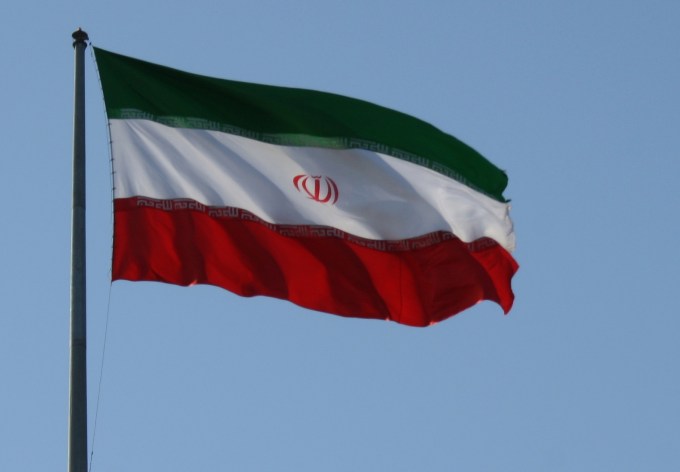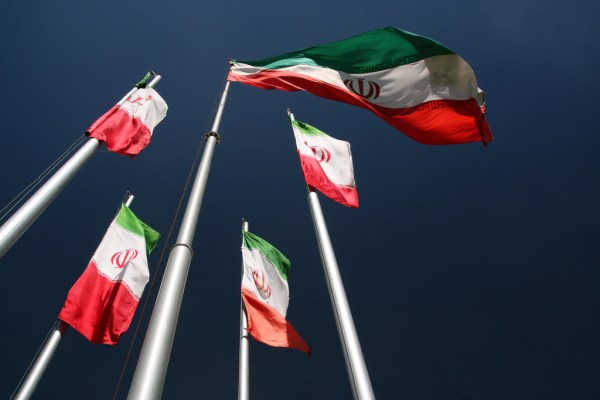As negotiators finalized a deal on Iran’s nuclear program last week, entrepreneurs in Iran cheered.
The deal, brokered after 20 months of negotiation, will restrict Iran’s nuclear program in exchange for lifting of international sanctions on the country. For Iran’s nascent startup scene, the lifting of sanctions – the most extensive in place since 2002 – is a huge game changer that will finally put Iran’s startup scene to the test.
“This deal will result in many changes in the Iranian startup ecosystem,” said Neda Golshan, an entrepreneur-in-residence at the Tehran based investment firm Sarava Pars. In addition to opening more opportunities, Golshan said, the end of sanctions will inject much needed competition in Iran’s tech industry. Iranian businesses, she noted, would have access to different markets and technologies. That “can raise competition and lead to a more mature market,” Golshan said.
For the past decade, Iranian startups have had to operate without access to foreign markets, foreign finances, and, at least officially, Facebook or other social media. A number of Iran’s scrappy, wired, and VPN equipped millennials have used that to their advantage – starting their own ventures, raising capital for them, and participating in any number of entrepreneurial events, such as Startup Weekend, hosted around the country.
These ventures have been largely copycats of platforms that have succeeded in the West such as Groupon, Amazon, and Zappos. While a number, such as Digikala, Iran’s Amazon andTakhfifan, a Groupon-like retailing site, have succeeded in Iran (Digikala is reported be worth $300 million), none have been viable beyond Iran’s borders and, thereby, globally competitive.
Startups in Iran, despite tremendous challenges such as shoddy infrastructure and a complicated legal system, have succeeded at home.
Iran’s market, as Hamidreza Ahmadi, the managing director of Iran’s Entrepreneurship Association, pointed out to me, “could only grow as big as the population of Iran, which isn’t small but as the saying goes ‘a fish grows to the size of its tank.’”
Startups in Iran, despite tremendous challenges such as shoddy infrastructure and a complicated legal system, have succeeded at home. More than half of the country’s population of nearly 80 million is under 30. And that youth population not only has one of the highest literacy rates in the region, (98 percent).Nearly 65 percent of Iranian homes have broadband access and mobile penetration is 136 percent, with an estimated 83.2 million mobile subscriptions – the largest in the Middle East. That makes the country a viable consumer market, particularly for tech startups.
Regionally, Iranian startups have the potential to tap into neighboring markets such as Armenia, Azerbaijan, Georgia, Iraq, Lebanon, Russia, and Turkey. Turkey, in particular, is eager to business with energy-rich Iran.
These factors have led a number of individuals to start investment firms in Iran. Among the biggest challenges the country has faced in the wake of sanctions is the inability to move money. The SWIFT system that connects more than 9,700 banks worldwide does not operate in Iran. Neither does PayPal or any major Western credit card. Iranians have had to operate in an isolated financial structure.
Hamdireza Ahmadi told me that with Monday’s deal, the country is bound to see an increase in the number of investment firms in Iran and investment capital coming in from outside. With that, he noted, Iran’s tech scene, is likely to become more attractive. “The majority of local investment firms have not been interested in tech startups,” Ahmadi said, the majority of which have are and have been stuck in seed stage. “It will be interesting to see whether they will reevaluate their investment strategies once they see a lot of money being poured in the startup scene in Iran.”
Iran’s startup scene is not separate from other parts of Iran’s economy. It is still under the influence of Iran’s government. Reza Hashemi, co-founder Persian Blog
Reza Hashemi, an entrepreneur and the co-founder of Persian Blog, a startup resource, told me that he believes Iranian expats will be one of the large sources putting money into Iran, particularly as angel investors. Yet, he noted that it was too premature to project where this additional capital available to startups will lead.
“Iran’s startup scene is not separate from other parts of Iran’s economy,’ Hashemi said. “It is still under the influence of Iran’s government.” It is a government that has enormous power over all aspects of Iranian society, particularly the private sector, which Hashemi noted is weak.
“The biggest obstacle to success for Iranian startups is from inside Iran, not outside,” Hashemi said. “There are many self-inflicted obstacles that I hope will be lifted along with the sanctions.”
One of the obstacles everyone I talked to touched on is weak infrastructure. Despite having high mobile and broadband penetration, Iranian connectivity is poor. The government of Hassan Rouhani, Iran’s president, is working to fix that.

In December 2013 Rouhani announced over Twitter (which officially is not available in Iran) that his government “set aside $1 billion” for an innovation fund for entrepreneurs. In September 2014, Rouhani called for the upgrade of Iran’s Internet, noting that it was crucial to the nation’s progress. “We cannot close the gates of the world to our younger generation,” Rouhani said.
Government and semi-government firms in Iran have pushed their country’s government to improve business conditions, Shahram Sharif, a Tehran-based tech journalist and founder of Itiran.com, told me.
“Iranians are interested in cooperating with outsiders and learning how to grow their businesses,” Sharif said. “Our vibrant local startup tech companies have grown in the last couple of years with the hope of sanctions removal for them to access global banking facilities and to be able to interact with foreign businesses.”
Our vibrant local startup tech companies have grown in the last couple of years with the hope of sanctions removal for them to access global banking facilities and to be able to interact with foreign businesses. Sharam Sharif, tech journalist
Interacting with foreign businesses and the outside world in general will inevitably alter Iran’s startup scene. Mahdi Beykipour, an entrepreneur, told me that he believes the lifting of sanctions will stem the tide of “copycats” and finally jumpstart innovation. Beykipour is one of three co-founders of RaasCo, an IT firm. The company has two major products; Anjam Midam, the first Iranian online marketplace for services, and GoodCo, a job search and recruiting platform or what the company calls a “career community.”
Unable to go beyond Iran’s borders to sell products and services and access resources, Iranian innovation has struggled to take hold. “With the lifting of sanctions, there will be more innovation,” Beykipour said. His GoodCo co-founders, Parisa Entezami and Fateme Makki added that the lifting of sanctions will spark more competition. “Now Iranian entrepreneurs will be able to think about reaching Asia, Africa, Europe, and maybe even America,” Entezami said.
“Until now there hasn’t been a force,” Beykipour said, noting that Iranian entrepreneurs have moved forward on passion alone. Passion alone doesn’t drive to success. Entrepreneurship, Beykipour noted, needs momentum and connections. “Without sanctions Iranians will have access to a larger market. This will help us invest in ideas and compete with everyone else in the world.”
